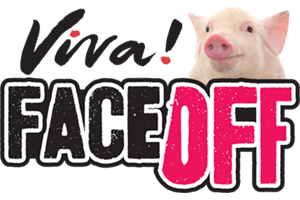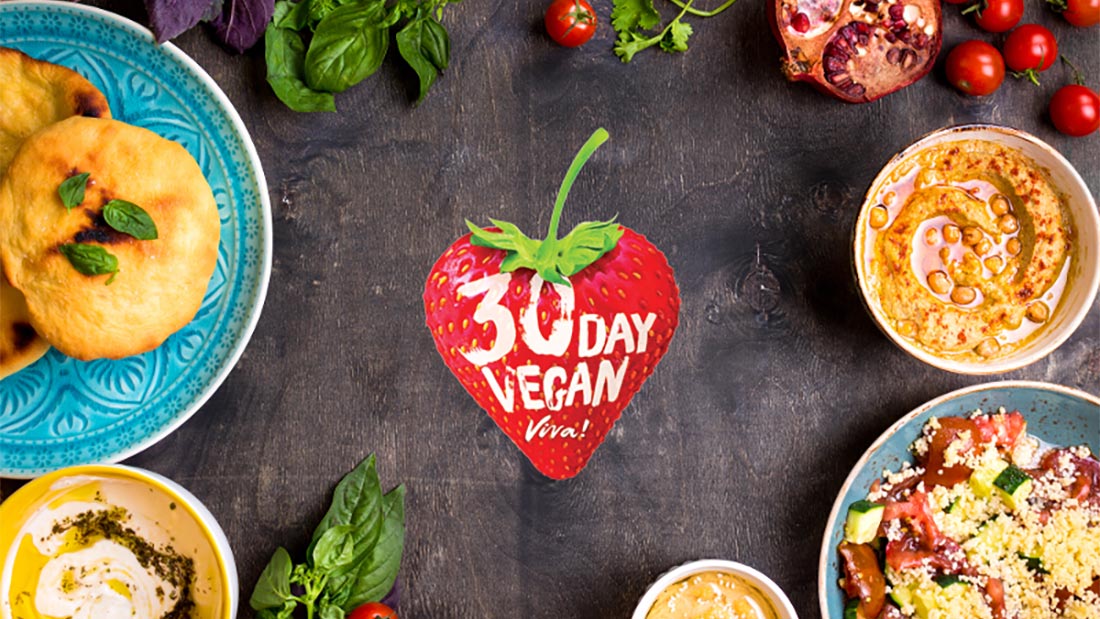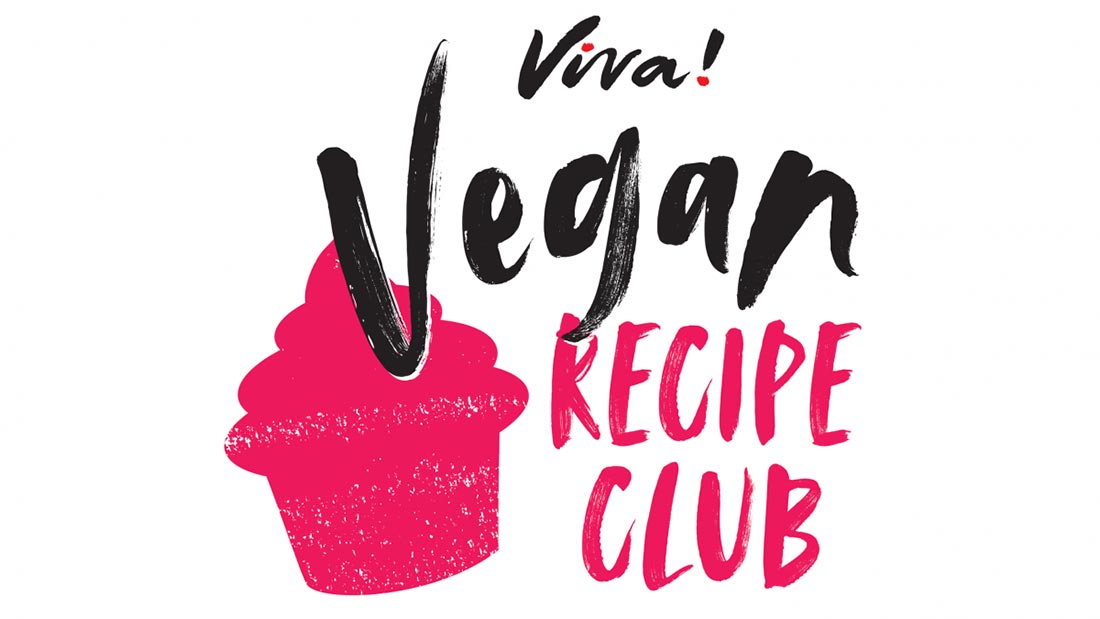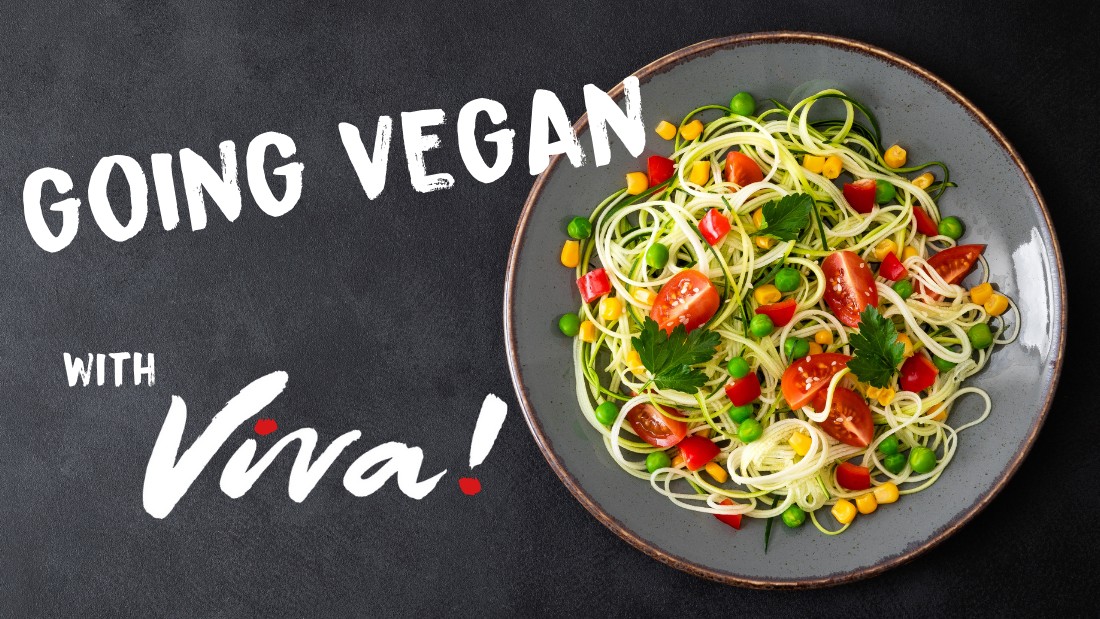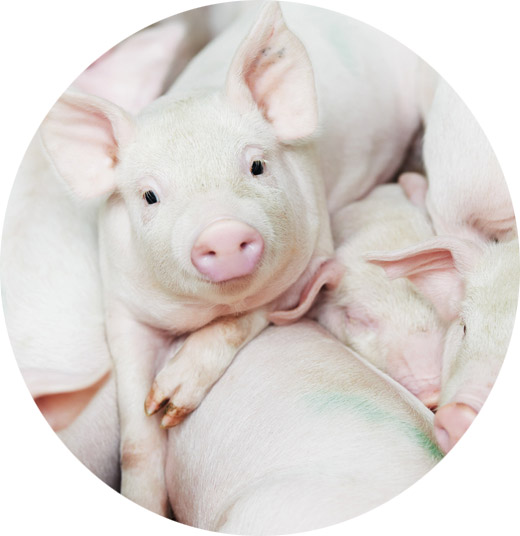
British people are taking the Face Off Challenge against the meat industry. See what they have to say…



Go kind
Well done for being brave enough to take the Face Off Challenge!
We have showed you this footage because it is almost all from a typical factory farm (Necton Hall Pig Farm, Norfolk) – sadly nothing exceptional. Viva! reported all farms to the government and nothing has been done.
The government will not end factory farming but you can.
Change is already happening across Britain. There are more vegetarians and vegans than ever before. Why not give it a go? It’s easier than you think!
Every time you shop, you have the power to choose kindness over cruelty. The power is truly in your wallet.
You can GO KIND!
10 million pigs killed
in the UK each year equates to:
833,333 per month
192,308 per week
27,397 per day
1,142 per hour
19 per minute
1 PIG KILLED EVERY 3 SECONDS
Is it legal?
You are about to join Juliet in seeing what happens on British factory farms.
Could this be legal in the UK today?
Do you think this is legal?
Sadly, you are right.
Farmed animals in the UK have surprisingly little legal protection.
Factory farming is the norm in Britain and by its very nature is cruel to animals and involves the frequent use of antibiotic drugs.
The following are legal in Britain:
- Piglets having their teeth and tail chopped off without anaesthetic
- Mother pigs incarcerated in crates so small that they can barely move for five weeks at a time
- Female pigs trapped in ‘rape racks’ forcibly made pregnant
- Piglets kept for meat in barren, filthy, crowded conditions their entire lives
- Piglets are killed for their flesh at just six months old
We have showed you this footage because it is almost all from typical British factory farms (in Norfolk; near Hull and Wiltshire) – sadly nothing exceptional. Viva! reported all farms to the government and we had no response.
One particularly cruel farm where the piglets were caged (Poplar Farm, near Hull) was approved by the Red Tractor scheme and supplies Morrisons, who also profess to monitor their suppliers. Viva!’s media coverage of Poplar resulted in the cages being removed but the animals are still intensively reared.
You may be shocked to discover that factory farming is the norm in the UK and both these farms are legal.
The government will not end factory farming but you can.
Change is already happening across Britain. There are more vegetarians and vegans than ever before.
Why not give it a go? It’s easier than you think!
Every time you shop, you have the power to choose kindness over cruelty.
The power is truly in your wallet.
Shockingly, you are wrong!
Farmed animals in the UK have surprisingly little legal protection.
Factory farming is the norm in Britain and by its very nature is cruel to animals and involves the frequent use of antibiotic drugs.
The following are legal in Britain:
- Piglets having their teeth and tail chopped off without anaesthetic
- Mother pigs incarcerated in crates so small that they can barely move for five weeks at a time
- Female pigs trapped in ‘rape racks’ forcibly made pregnant
- Piglets kept for meat in barren, filthy, crowded conditions their entire lives
- Piglets are killed for their flesh at just six months old
We have showed you this footage because it is almost all from typical British factory farms (in Norfolk; near Hull and Wiltshire) – sadly nothing exceptional. Viva! reported all farms to the government and we had no response.
One particularly cruel farm where the piglets were caged (Poplar Farm, near Hull) was approved by the Red Tractor scheme
and supplies Morrisons, who also profess to monitor their suppliers. Viva!’s media coverage of Poplar resulted in the cages being removed but the animals are still intensively reared.
You may be shocked to discover that factory farming is the norm in the UK and these farms are legal..
The government will not end factory farming but you can.
Change is already happening across Britain. There are more vegetarians and vegans than ever before.
Why not give it a go? It’s easier than you think!
Every time you shop, you have the power to choose kindness over cruelty.
The power is truly in your wallet.

Celebrities Face Off
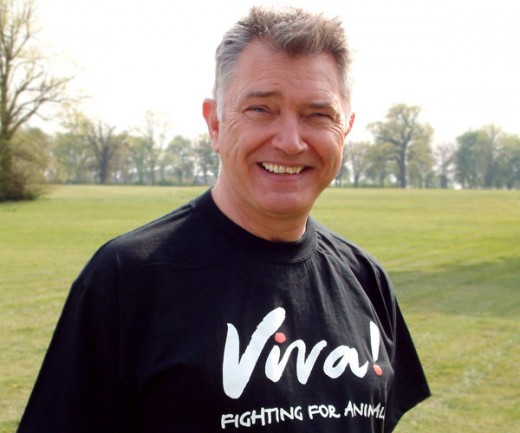
“It occurred to me 45 years ago that I didn’t need meat to sustain my health and wellbeing.
It therefore followed that the only justification for my contributing to the mass killing of animals was to satisfy my taste buds.
The taking of an animal’s life to enjoy the taste of it is inhuman in itself, but to do so with the casual cruelty apparent in Viva!’s film demonstrates a descent into barbarity.
I wholeheartedly support their Face Off campaign.”
Martin Shaw, actor and Viva! patron
“Call ourselves a nation of animal lovers? What a joke! From birth to death, in their short lives they suffer.
You won’t believe what happens on Britain’s pig farms every single day.
Please join me in Viva!’s Face Off to the British meat industry.”
Wendy Turner Webster, TV presenter and produce
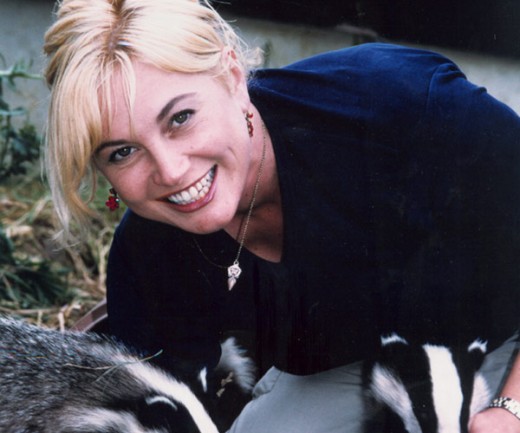
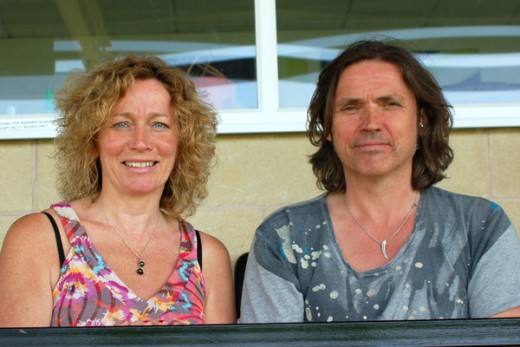
“I watched Juliet inside the pig farm and was horrified by way animals are treated in Britain in 2016.
The production of bacon and sausages involves the most absurd cruelty, nothing less than an animal holocaust – and it’s actually bad for human health.
Please join me in Viva!’s Face Off to the British meat industry.”
Dale Vince, founder of Ecotricity & chair of Forest Green Rovers
“When I think of factory farming I think of sows gnawing at bars and locked in crates.
Viva!’s Face Off campaign confronts consumers with the brutal reality of everyday life and death on British pig farms.
Everyone should watch their brave undercover investigation.
Viva! has my support.”
Jenny Seagrove, actress
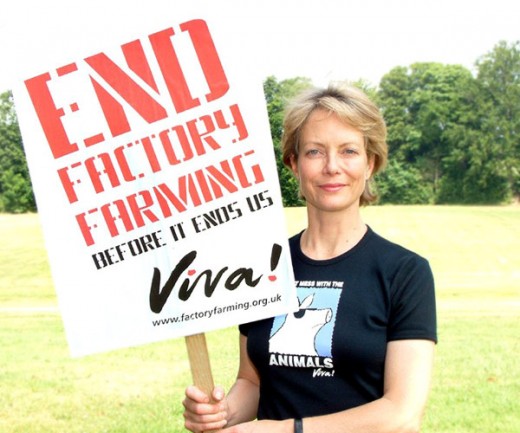
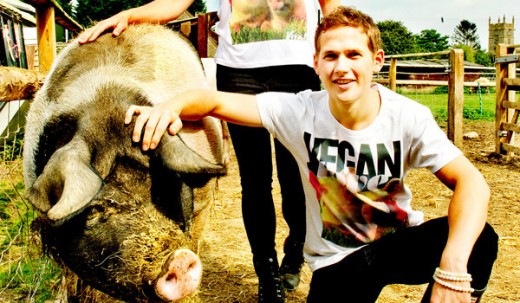
“It’s time to end this cruelty and face off to the British meat industry.
Compassion will win so you may as well join us now.
Come on Norwich I expect you to lead the way!”
Gregg Lowe, actor (from Norwich)
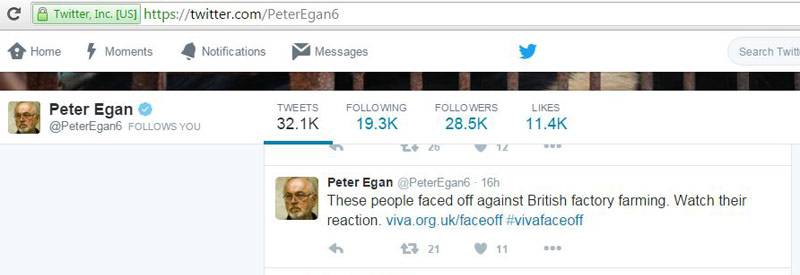
 These people faced off against British factory farming.
These people faced off against British factory farming.
Watch their reaction.
Peter Egan
Face Off around the UK




Promote the Face Off challenge!
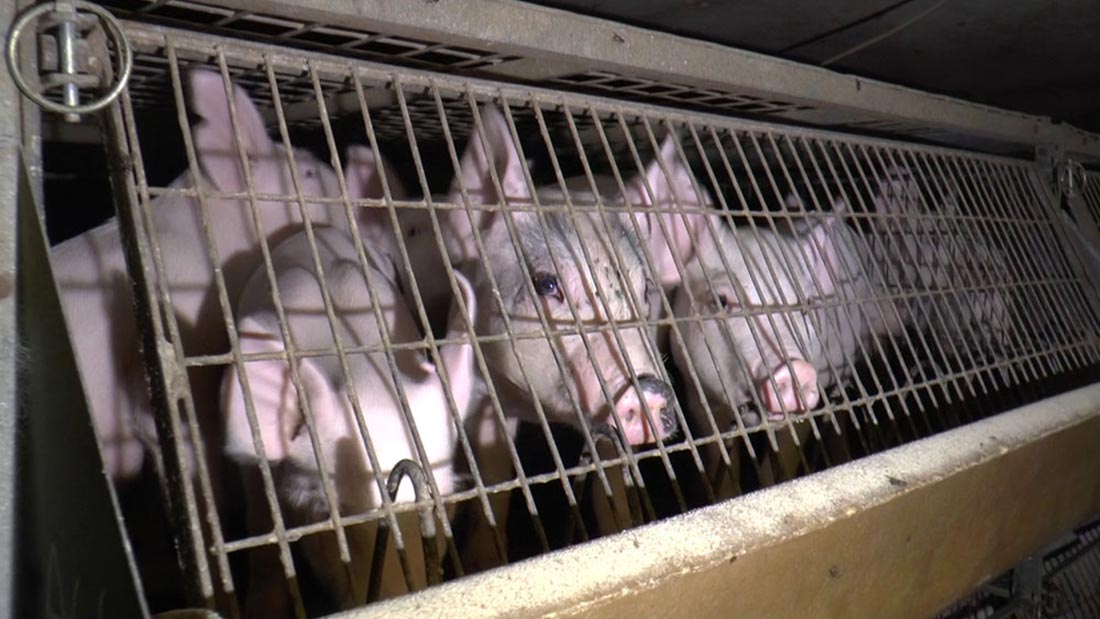
Be a part of this change for kindness!
One of the best ways to help people change their diets is to show them how their food is produced. The flip side of seeing images of animals suffering is the realisation that you only have to change your diet to stop that suffering.
The challenge is to get people engaged in the first place. That’s where you come in!
Why not take the Face Off challenge to your friends and family – or even out onto the streets of your town/city? It’s easy – and below we look at ways you can do just that!
Show the Face Off video
The Face Off video is free to see on this very website. If you have internet access you can show it to people on your laptop, tablet or even mobile phone!
Videos are available on Vimeo and Youtube:
- Face Off – Dairy (Vimeo) (Youtube)
- Face Off – Pigs (Vimeo) (Youtube)
- Face Off – Eggs (Vimeo) (Youtube)
You can show it to individuals or how about asking a group of people to watch? Maybe tempt them with some vegan nibbles!
Take Face Off onto the streets!
One of the increasingly popular ways of engaging with people is to take footage of factory farming out onto the streets. That’s exactly what we are doing, but you can get involved, too!
Politely ask people to watch the video. Tell them that it shows what happens on British factory farms. A good way to get them to watch is to ask them if they think what they are watching is legal (shockingly it is). Read our FAQ.
As you may not have access to free wifi when you’re out-and-about you can download the footage as a high definition film straight onto your device. Here’s how:
Laptop: Simply visit the Vimeo page (listed below) and click on the icon that says download (it is next to the share button). You will be given options of what quality to download.
iPad/Android: Click on download link as above. The movie should be available to view offline once downloaded and will be stored with your other videos/photos. On some mobile devices you may be asked to sign up for a free Vimeo account to download the file.
- Face Off – Dairy (Vimeo) (Youtube)
- Face Off – Pigs (Vimeo) (Youtube)
- Face Off – Eggs (Vimeo) (Youtube)
Order materials to give out to people. We have leaflets that show the reality of what really goes on at Britain’s factory farms. Our experience is that most people are shocked and are looking for ways to change. So we have cards that tell them how to access the biggest online collection of vegan recipes (from Viva!, of course!).
You can also order larger quantities for stalls and other events. Email campaignorders@viva.org.uk for details.
Join Viva!’s Street Action Network
Viva!’s Street Action events aim to positively raise awareness of the suffering of animals in Britain’s factory farms and promote the benefits of a vegan lifestyle. They are educational events for the public with one to one interactions and FREE information on a vegan diet.
Get active for animals and join here.




